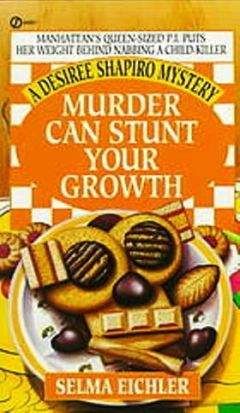Steve Andreas - Help with Negative Self–talk Volume I

Помощь проекту
Help with Negative Self–talk Volume I читать книгу онлайн
The fifth question directs your attention to the price, rather than to the food. While this may be a good choice if you have little money to spend, it will restrict your choices, and sometimes result in ordering something that is not enjoyable. You may feel some regret that you can't order the food that you would choose if you had more money to spend.
The sixth question directs your attention to a future feeling of the food in your stomach — a pleasant feeling of fullness or lightness — rather than the pleasure of tasting the food. You may choose a meal that isn't quite as pleasurable, but you will probably seldom overindulge or become overweight.
If you review your experience of these questions, you will find that each of them offers certain benefits and each of them also has certain drawbacks, and that will be true of any question that you could ask. Depending on the context, and your outcome at the moment, any of them could be useful, but each of them will also have certain disadvantages.
You may also discover that one or more of these questions seems very familiar or logical, "Oh, yeah, that makes sense," while others seem alien or nonsensical, "I'd never ask that!" That kind of response indicates that you would typically tend to ask one kind of question, rather than another.
Now return to the question that you first asked yourself at the beginning of this chapter. Find out what you can discover about how it directs your attention, you feeling as a result, and what the potential benefits and drawbacks of this question are… .
Core Question
A core question is a fundamental question that someone continually asks throughout the day, unconsciously organizing and directing experience in ways that can be both enabling and limiting — a powerful determinant of our skills, attitudes, and limitations. When you discover your core question, that gives you an opportunity to examine it, and change it to something more useful to you.
Since this question is one that we typically ask, regardless of the context, it is so familiar that we tend presuppose it and take it for granted, as the fish does water. It is so much a part of part of who we are that it is unconscious, so it is difficult to identify what it is. The first step in this process is to become even more familiar with the impact of different questions. The instructions below are written as an exercise to do with two other people, because you can learn so much by comparing what you do with what someone else does. But you can also do the exercise by yourself. Another way to gain a wider experience is to then take a friend through the exercise, and notice how different some of their answers are.
1. Introduction: experimenting with examples Think of a context that is important to you that involves at least one other person. Keeping that context the same, experiment with several of the questions below, in order to discover how different questions alter your experience. Notice how your experience of the same event changes when you ask each question internally. Particularly notice how the scope of your attention shifts, and also any shifts in the three major sensory modalities — visual images, auditory sounds, and kinesthetic feelings.
What can I get here? What do you want? Aren't I clever?
What should I do?
Am I safe?
Do I have a place here?
What's wrong?
What do they want from me?
Have I done everything I could have?
Am I included?
How does it work?
What is my place here?
Am I well?
How else could it be?
Do I want this?
How am I doing?
What's most important?
What do I have to contribute?
Am I good enough?
Is this all there is?
Who's in charge?
How can I help?
Do they love me?
Is it right?
What's happening to me? If I survive this, what's next?
Do I belong?
How can this give me pleasure?
Will I survive this?
Am I being understood?
How could this be better?
What's missing?
What should I do next?
How can I make the most of this situation?
Pause to share your experience of a number of these questions, and compare what you noticed with what others noticed… .
2. Select a context Now think of an example of an important context in your life: "home," "work," "relationship," "children," etc. that includes at least one other person. Notice how you represent this example in all three major modalities (images, sounds, and feelings). Also notice the submodalities of your experience — the smaller elements within each modality. For instance, the brightness, size, color, distance, moving/still, 3–D/flat of the visual image, the loudness, tonality and tempo of any auditory words or sounds, and the intensity, extent and qualities — hardness, temperature, etc. — of any tactile kinesthetic feelings you have… .
3. Eliciting your core question
a. Method 1 While thinking of your experience of this major life context, ask yourself, "Ifthere were a question, always in the back ofmy mind, that quietly
guided all my experience and behavior in this context, what would it be?" Imagine that this question is just underneath your conscious awareness, directing your attention, and guiding all your behavior.
Write this question down, and then think of your important life context again, and imagine asking it there. If this question changes your representation of this context, it's probably not quite the right one. Your core question will fit the context so well that it won't change your representation when you ask it. Try adjusting your question until you find one that fits better… .
Now think of the opposite of your core question — whatever "opposite" means to you. Write this question down, and then notice how it changes your experience of your important life context when you imagine asking it… .
Experimenting with the opposite of your question offers a vivid contrast for realizing the impact of a question, and it often clarifies what your question might be. You can also try the alternate method below for eliciting your core question:
3b. Method 2 Think of a profoundly altered state you have experienced that was pleasant… .
Put yourself back into this state, experience it, and identify what makes it strikingly different from your usual experience. In an altered state the core question is either not asked or is completely answered, and this is one of the factors that makes this state altered. This altered state will be the opposite of your usual state.
For example, one man said, "When I was in that state I thought, 'What are people afraid of?' I was amazed that people could be scared of anything. I felt completely safe." This indicates a core question that might be something like, "Am I safe?" or "How safe am I?" Since he usually continually focused on safety, being completely safe and not needing to test for safety was a very altered state for him. Another person said, "In that state it was very clear that there was nothing to be done; everything was perfect as it was." The opposite of this might be something like "What shall I do next?" or "What needs to be done?"
Using these understandings, determine what is different about your altered state… .
Then choose a core question that is the opposite of your experience in the altered state… .
4. Try out your core question in some other major life contexts to see how well it fits there. Make any adjustments that you can think of to make it fit better in all those contexts. For instance, "What food shall I choose," would be limited to only a few contexts, but "What should I do next" is more general, so it could be used anywhere.
5. Share your experiences Share what you found in steps 3 and 4 with the other people you are doing the exercise with… .
6. Experimenting and adjusting Next, try on the questions of the others in your group, one at a time. Notice how these different questions change your experience. When you try on these different core questions, what aspects do you like, dislike, find interesting or useful, etc.? …
Again, share your experience with the others in your trio… .
7. Examine a question As a trio, take one core question and examine it, using the checklist that follows, to identify possible problems or limitations. Keep in mind that a core question is a very condensed distillation that is embedded in all of a person's presuppositions, beliefs, and ways of organizing their experience Also keep in mind that each word in a core question can have many different meanings to different people. A question that works well for one person may work very differently for someone else. The checklist is only a way to alert you to possible limitations that you might not otherwise notice, and these can be a focus for experimenting with modifications or alternatives in the next step of this exercise.
8. Checklist (items are not listed in order of importance or any other hierarchy.)
a) What is presupposed? (Negate the question and notice what is still true. An effective core question presupposes choice, ability, resources, good feelings, etc.)
b) What modal operator(s) are contained in the question? Modal operators are words that indicate possibility, choice, desire, or necessity — and their negations. A useful core question will usually include possibility, choice, and desire, rather than necessity or negations of possibility, choice, or desire. (For more on modal operators: (sbe2, chapter 4)
c) What verb tense is used? (past, present, future, conditional, subjunctive, etc.) Since the past can't be changed, a question directing attention to the present and future will usually be more useful in enabling choice, ability, and satisfaction.
d) Self/other emphasis/sorting. Notice pronouns: I, you, they, we, etc. Ideally there is a balance between attending to self and others, with respect and consideration for both.
e) Active/passive Is the person the active subject or passive object of the question? For instance, "What shall I do?" is active, while "What will happen to me?" is passive, and presupposes lack of choice.
f) Is there a negation? ("What's wrong" = "not right") Try transforming any negations into positive statements. For instance, "What's wrong" could become, "What do I want to attend to?" or "How can I make this better?" etc.
g) Are there any comparisons? (more, less, better, best, enough, etc.) Is a comparison self/other, self/self, or other/other? Try changing or eliminating the comparison. Does a comparison offer useful feedback information, and result in useful feelings of pleasure and motivation?
h) Is it a Yes/No (digital) question, such as "Am I safe?" or an analog (continuum) question, such as "How safe am I?" Usually analog questions will be more useful.
i) Is it a spurious yes/no question that is stated so that it can only be answered in one way? For instance, "Did I do everything I could have?" or "Am I completely safe?" can never be answered "Yes" in a complex world.
j) Sensory–based Does the question direct the person's attention toward specific sensory–based events and behavior? For instance, "What's happening around me right now?" directs attention to specific external events, but "Am I safe?" does not
k) Note any cause–effect ("this caused that"), equivalence ("this = that"), or context that is stated, referred to, or presupposed.
l) Which of the three major aspects of experience—behavior, thinking, and feeling—are included, omitted, or presupposed.
m) Does it contain a self–reflexive loop? "How well am I doing?" in contrast to "How well did that work?"
n) Does the question elicit motivation that is "toward" "away from" both, or neither? Experiment with changing this orientation.
o) Are the feelings that result from the question pleasant unpleasant or neither? How could you change the question to make it more pleasant?
9. Experiment with modifications or adjustments As a trio, suggest changes in the question for the person whose question it is to try out in their experience to see if they like the resulting changes.
For instance, if the original question was "Am I loved," that is passive and a yes/no (digital) question. You could try, "What can I do to be sure she loves me?" which is more active. Or you could try, "How much am I loved?" which presupposes that you are loved, it is just a matter of degree. As they try out a modification, be particularly attentive to their nonverbal responses, which will indicate how well it does or doesn't fit for them. Make a note of changes that the person likes.
10. Congruence check ("ecology") Whenever you find a change that you like, and that you think you would like to have it as part of your automatic unconscious responding, test it thoroughly by imagining asking the question in all your major life contexts, being alert for any possible problems, limitations, or compli–cations. If you notice problems, experiment to find out how you can adjust the question so that these problems don't arise.
11. Rehearse in future contexts Assuming that you have identified one or more changes that you are congruently pleased with, rehearse the modified question in a variety of future life situations, so that the question will generalize widely and become a spontaneous unconscious response.
12. Testing/Feedback Make a promise to yourself to check a week or two in the future to find out how well these changes are working. You can always make further modifications any time you want to.
This process can be used to adjust what we say to ourselves in any problem situation, in order to make it more useful in supporting our life goals. Changes in our core question will usually generalize widely, and have a broad impact on our lives, far beyond specific problems. A live workshop presentation of this process is available on CD (6)























